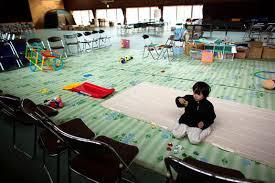
The family is a very important social structure. All different types of family structures can successfully raise a child, and there is no "one-size fits all" definition.
The State must protect the child from violence, abuse and neglect. But no child should be removed from their family home by State intervention without very good reason, and after considering all views, including the child’s, in light of what is in the child’s best interests.
But sometimes - through war, persecution, health needs, violence in the home, or for other reasons - children are deprived of their family environment. In these situations, the State must protect the child and ensure appropriate alternative care.
Adoption, particularly international adoption, is an overlooked and serious issue that can deny children, usually from developing countries, these rights if their best interests are not at the forefront of decision making.
Parents have a responsibility to protect their children and raise them. However, this should never be at the expense of children’s rights. For example, a parent does not have a "right" to physically punish their child - smacking an adult would be violent assault. It should be the same for children.
All human rights are inter-connected, so it is important to look at children’s rights regarding family and alternative care along with their other rights. For instance, the right to be heard in custody disputes or State interventions removing a child from their family home.
Relevant articles of the Convention on the Rights of the Child (CRC) dealing with family and alternative care:
Parental guidance and the child's evolving capacities (article 5): The State must respect the rights and responsibilities of parents and the extended family to provide guidance for the child, which is appropriate to her or his evolving capacities.
Separation from parents (article 9): The child has a right to live with his or her parents, unless this is deemed to be incompatible with the child's best interests. The child also has the right to maintain contact with both parents if separated from one or both.
Family reunification (article 10): Children and their parents have the right to leave any country and to enter their own for purposes of reunion or the maintenance of the child-parent relationship.
Parental responsibilities (article 18): Parents have joint primary responsibility for raising the child, and the State shall support them in this. The State shall provide appropriate assistance to parents in child-raising.
Protection from abuse and neglect (article 19): The State shall protect the child from all forms of maltreatment by parents or others responsible for the care of the child, and establish appropriate programmes for the prevention of abuse and the treatment of victims.
Protection of a child without a family (article 20): The State is obliged to provide special protection for a child deprived of the family environment and to ensure that appropriate alternative family care or institutional placement is available in such cases. Efforts to meet this obligation shall pay due regard to the child’s cultural background.
Adoption (article 21): In countries where adoption is recognised and/or allowed, it shall only be carried out in the best interest of the child, and then only with the authorisation of competent authorities, and safeguards for the child.
Source: CRIN
 FR
FR EN
EN AR
AR








